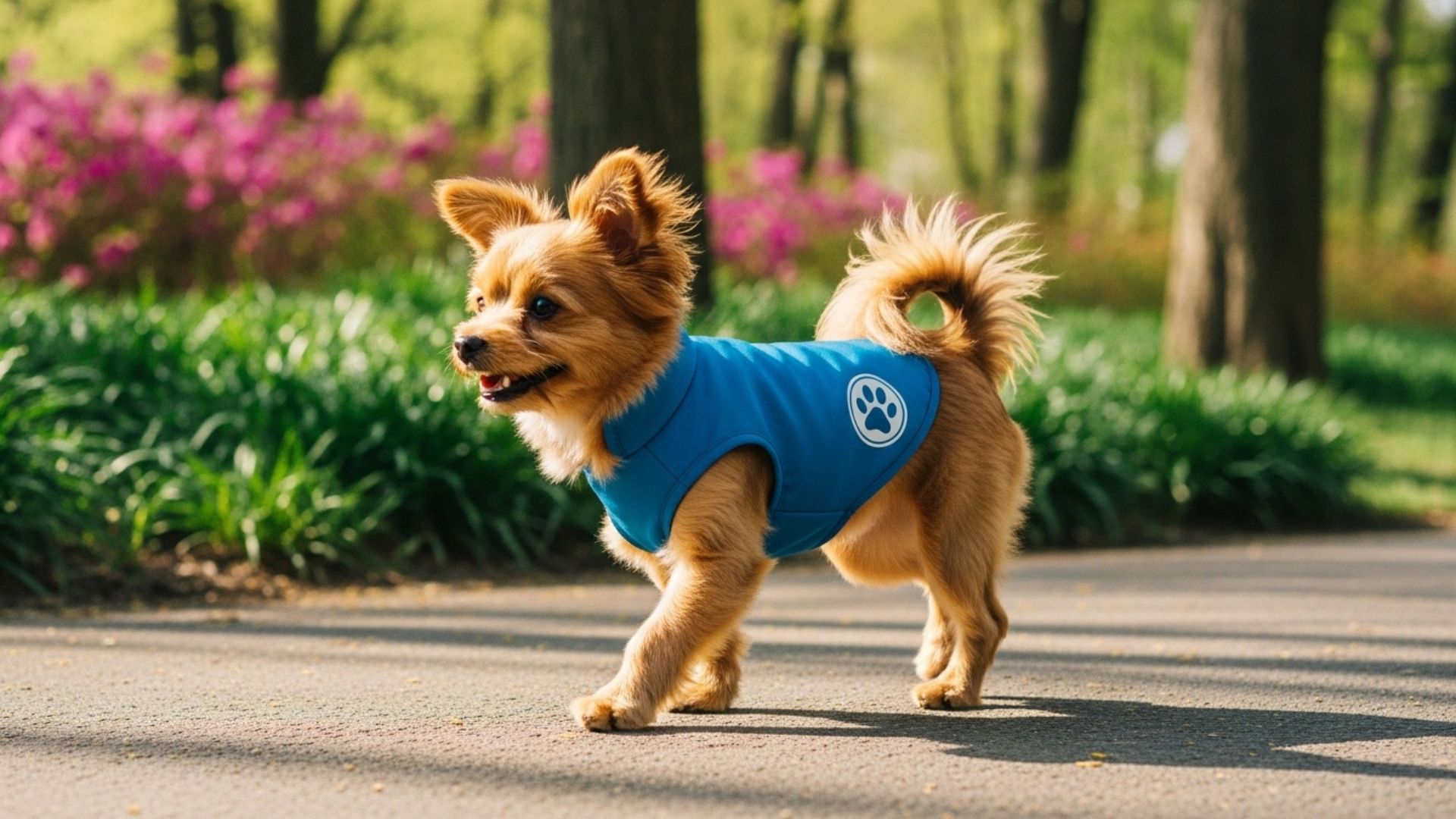You know the saying, “good things come in small packages”? When it comes to dogs, it just couldn’t be truer. Some of the tiniest breeds hold the biggest hearts, so big they’re trusted as service dogs, therapy dogs, emotional support dogs, even!
These are full-fledged jobs that human beings are equipped to handle.
These dogs volunteer in roles like therapy visits and senior care, even school programmes. Imagine you’re in the world’s most depressing place, like a hospital bed, and a little pup jumps on your lap. Didn’t the room just instantly brighten up? Doesn’t it feel warmer, more hopeful?
It’s no exaggeration; the power and magic of these small volunteer dogs are truly remarkable. Compact yet capable, they’re portable, adaptable, and endlessly friendly. Let’s take a closer look at some of the best tiny dog breeds making a big difference in volunteer service.
Best Tiny Dog Breeds For Volunteer Services
1. Yorkshire Terrier

The Yorkshire Terrier may be tiny in size, but its heart for service is larger than life. With their cheerful spirit, sharp intelligence, and affectionate nature, Yorkies bring joy and comfort wherever they go.
These tiny dogs have the confidence of being ten times their size. The Yorkshire Terrier enters the room with an aura that puts everyone at ease, brings smiles to their faces, and just sets the mood. They basically strut in the room like they belong. This kind of energy instantly cheers everyone up.
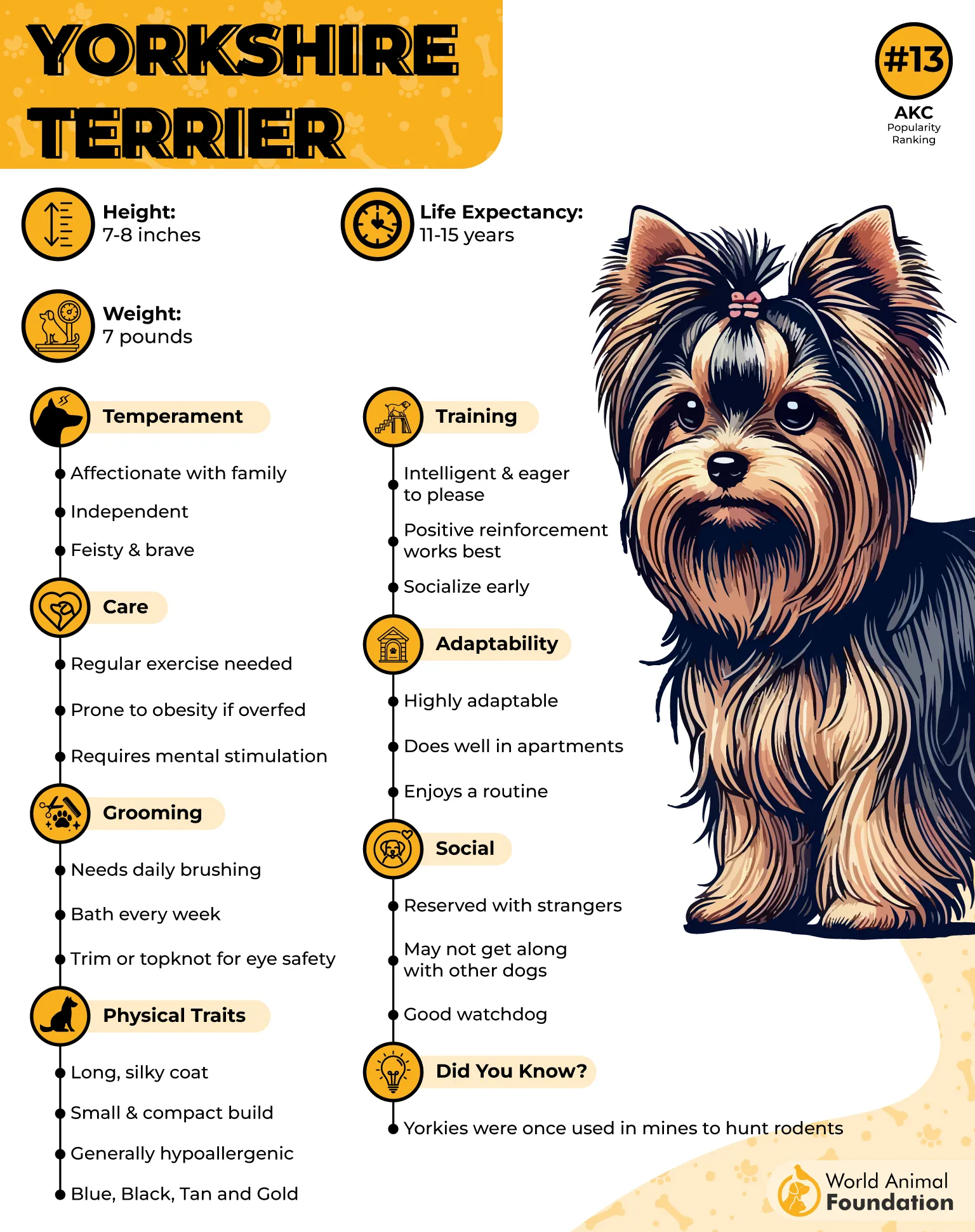
Their unique feature is their adaptability. They are pretty self-assured, and that kind of self-reliance is super important in the field of volunteer services. If you’re in the mood to snuggle, they’re right there. Ready for some playful fun or even to lend a guiding paw when needed?
They’ve already got you covered. From seniors in assisted living to children in therapy, the Yorkshire Terrier can handle it all.
For example, Winnie is a little Yorkie with a big purpose. It’s a registered therapy dog and volunteers at the Brenner Children’s Hospital, where the AKC reports its dedication to work, impressive intuition, and ability to read other people and give them the energy they need in the moment.
2. Bichon Frise
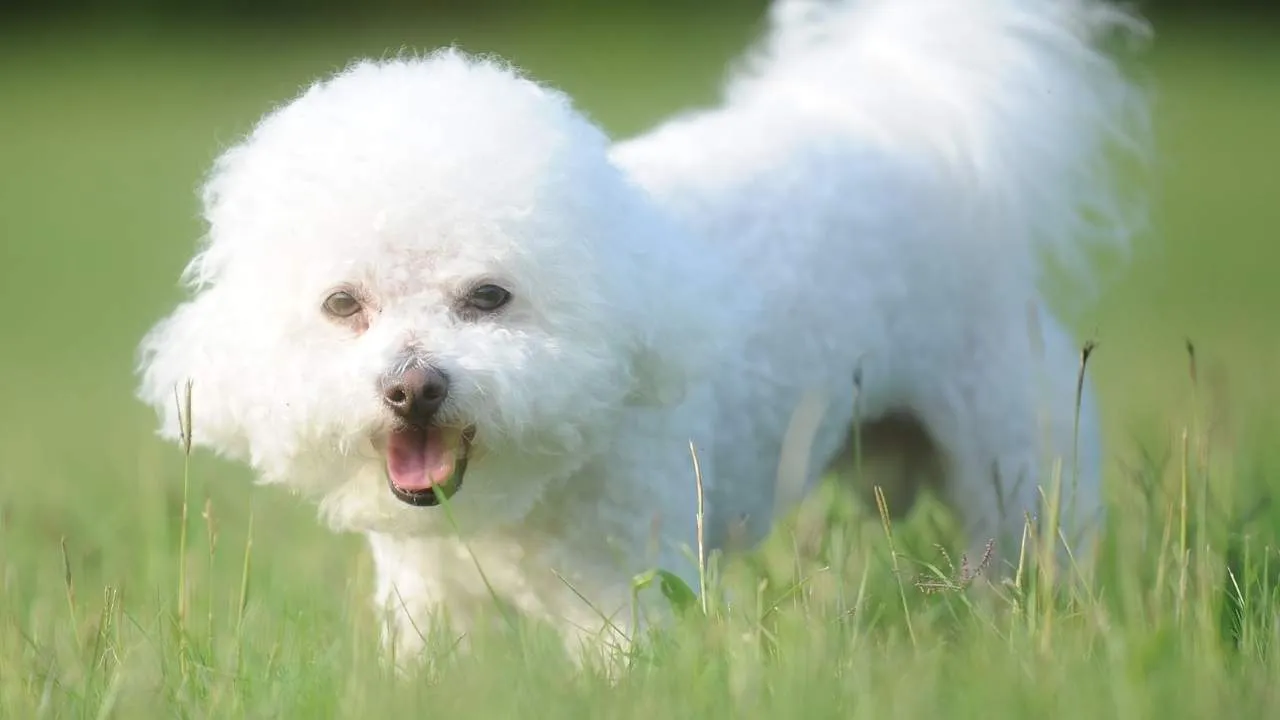
The Bichon Frise is a bundle of joy wrapped in a cloud of soft, white curls. Cheerful, affectionate, and incredibly social, this little dog thrives on human connection, making it a natural fit for volunteer and therapy work.
According to PetMD, the Bichon Frise is an intelligent dog breed that is capable of following specific orders and fulfilling specific tasks. This walking cotton ball radiates joy wherever it goes. This skill alone makes them amazing therapy dogs.
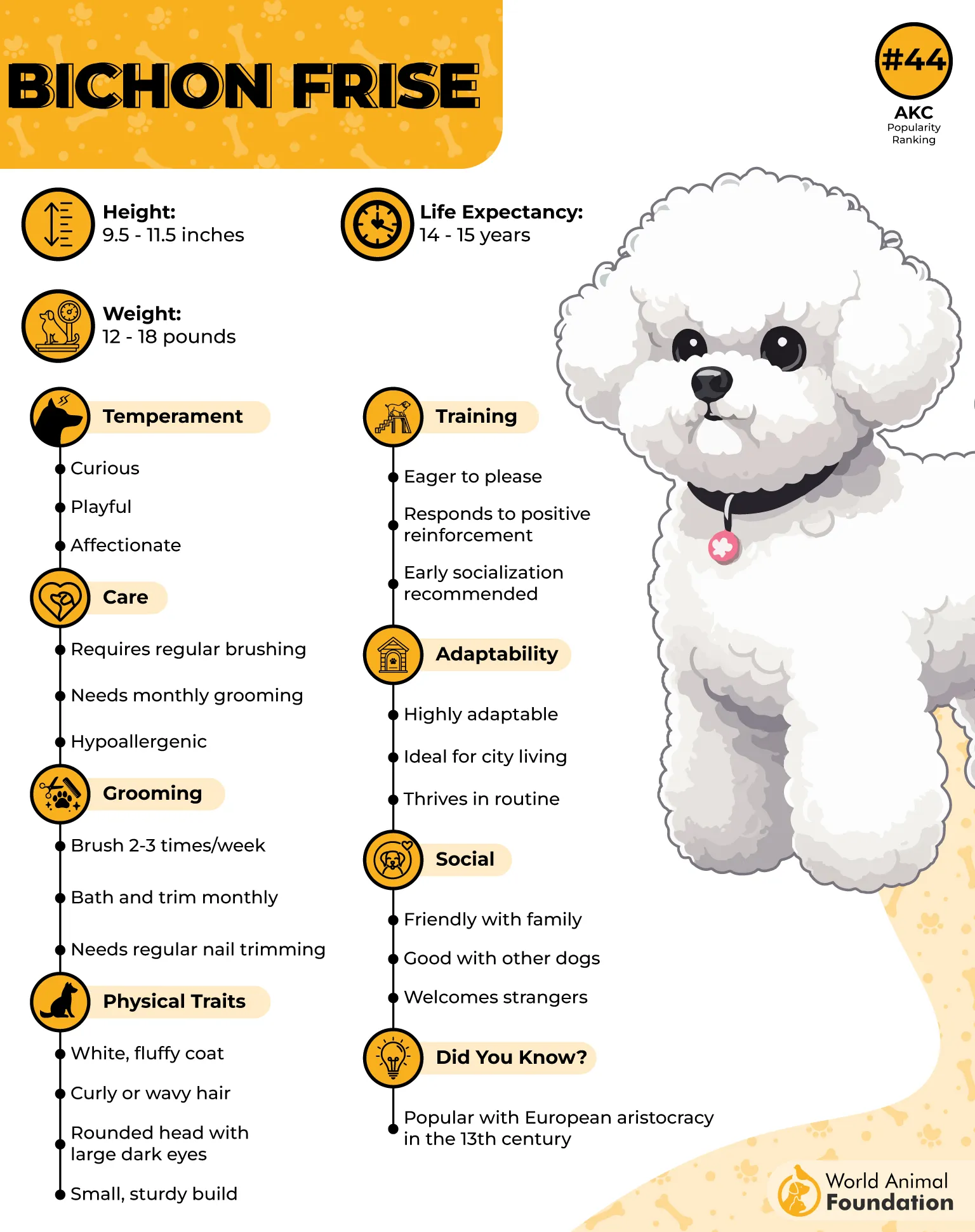
They’re extremely gentle and patient, so they’re great choices for school and hospital settings, making them excellent service dogs. They sit calmly while being petted, which is a rare feature uncommon in the other pets.
This calm demeanor is perfect for seniors or people in recovery, recovering from any sort of illness, who just need a calm presence.
If you’ve ever met a Bichon Frise, you know their world revolves around human connection; they don’t just enjoy attention, they blossom because of it. With their sparkling eyes, joyful energy, and irresistible charm, Bichons have a natural gift for winning hearts and lifting spirits wherever they go.
3. Maltese
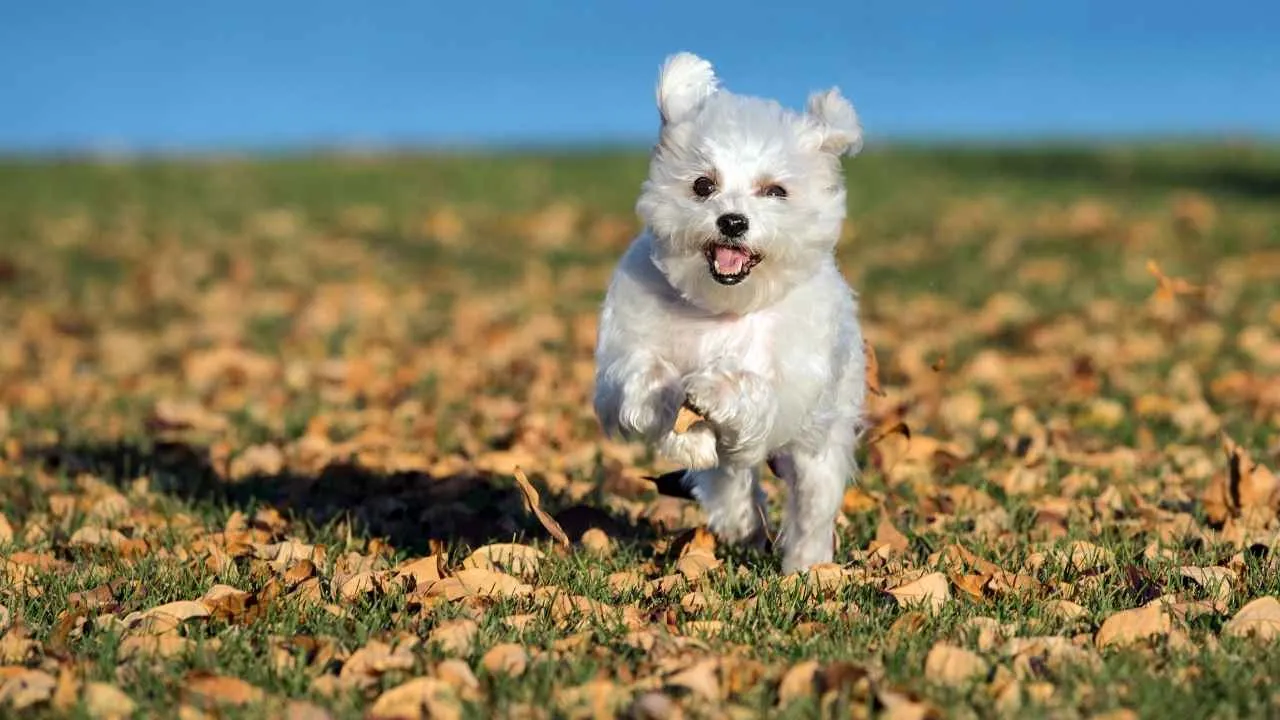
The Maltese is the very definition of gentle elegance and heartfelt affection.
Maltese have mastered the art of being lapdogs due to centuries of being specifically trained in the department. If your requirement is simple, a fluffy dog to just be there for you, this is the one.
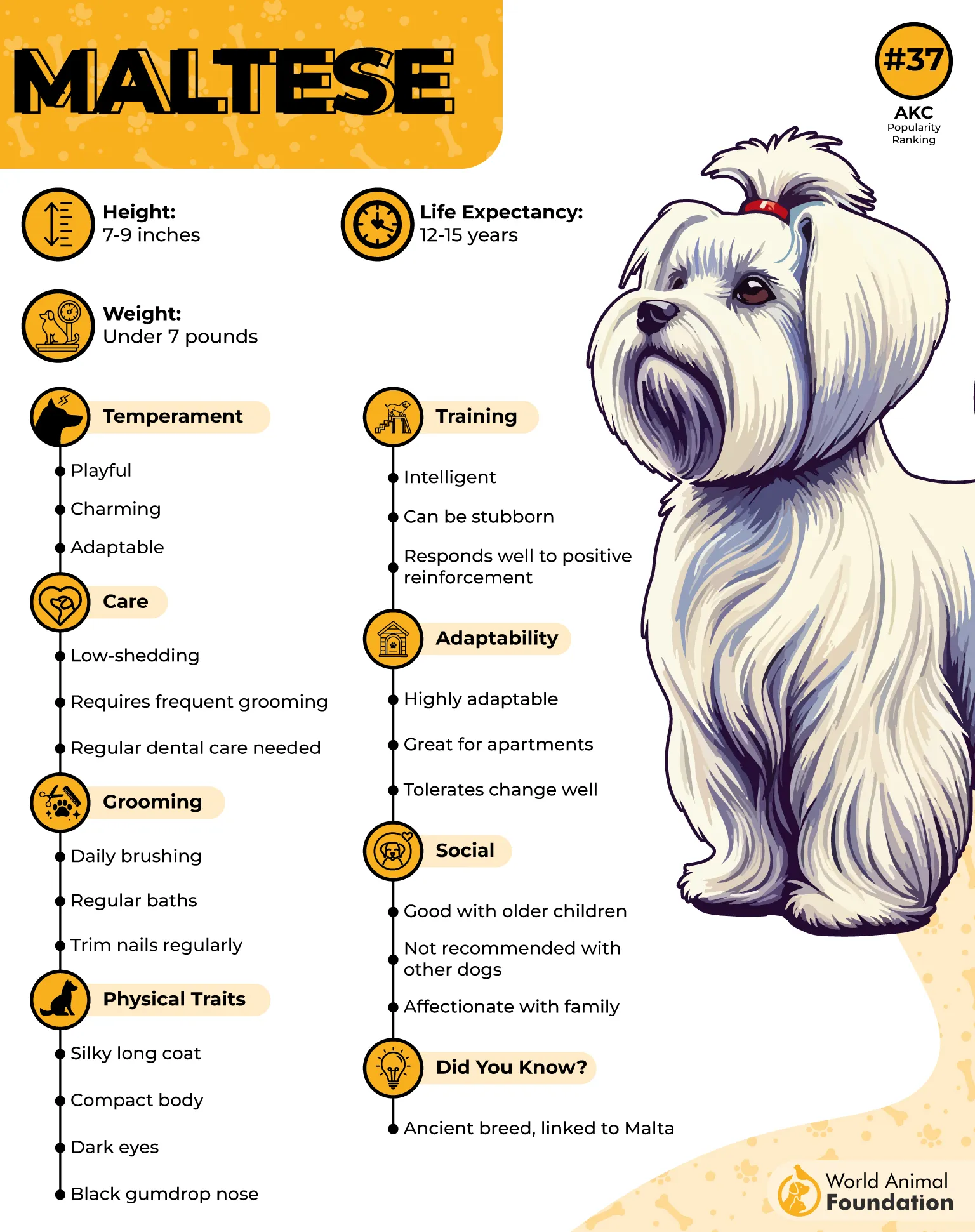
They’re small, have a calm temperament, are gentle, and love snuggling. Hospitals and care homes have patients who have anxiety and crave comfort, and the Maltese is considered a great therapy partner.
But they aren’t limited to this. They’ve got the energy to put you on your feet and dash in space, bring a playful spark, and become affectionate where needed with kids.
And because they’re so small, that makes them portable and easy to carry, which is ideal, great when needing to visit multiple places in a day.
4. Toy Poodle
There are countless reasons to love the Toy Poodle. Known as one of the smartest dog breeds in the world, they combine intelligence with an intuitive understanding of people and places.
Children adore them for their playful yet gentle nature, and their quick learning ability makes them easy to train and perfectly suited for sensitive environments where calm and care truly matter.
Their intelligence is one big reason it’s considered one of the best dogs for volunteer work. Their effort to understand and read the room, the person they’re working with, is impeccable.
From being energetic and bouncy with a child at a hospital and then being calm and still as a senior petting them in a home, shows how companionship comes naturally to them.
Also, they’re a safe choice despite being furry. Their coats are hypoallergenic, meaning people with allergies will still be safe in their presence. Small enough to sit in a lap, light enough to be carried, and charismatic enough to charm just about anyone and make everyone happy.
5. Shih Tzu
The Shih Tzu was originally bred, literally, to be companion dogs. And honestly? It is manifested through their personalities. They’re the absolute happiest when they’re around people. You could actually say they’re natural volunteer workers; there’s no denying that.
Their personalities are calm, collective, and affectionate. These are healthy traits to have for service dogs working in hospitals or assisted living centres, to create a soothing presence that is expected of them.
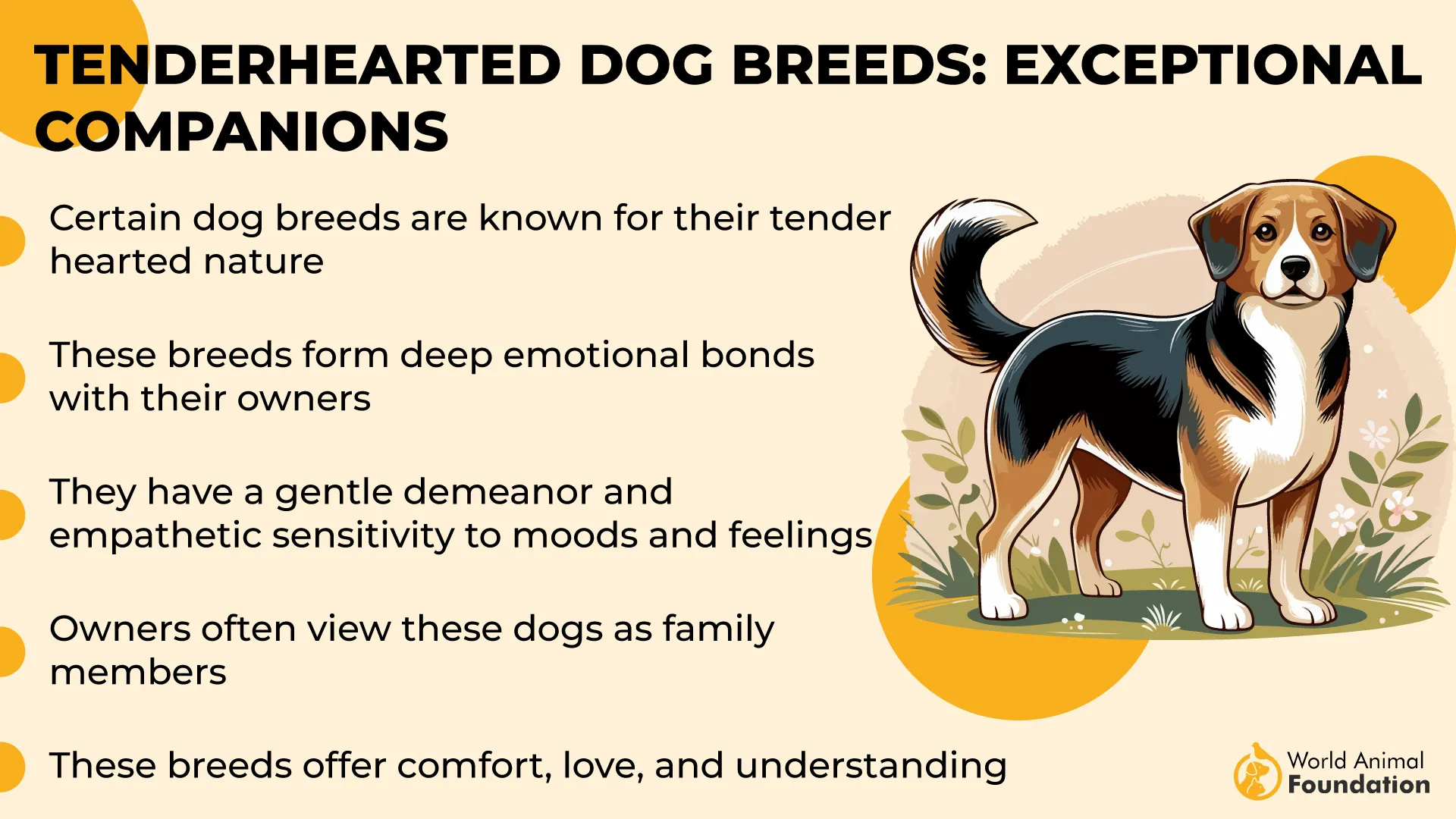
But at the same time, if the coast is clear and the room needs a touch of sparkle, they can turn on their playful side, too.
From what we’ve discussed, you can tell these are pretty adaptable dogs and can be comfortable in any setting, cozy apartment, buzzing office, quiet therapy sessions, or busy hospitals. Their size, in addition, makes them approachable for children and others who might be nervous to be around animals.
6. Pomeranian
The Pomeranian may be small in stature, but it carries a huge heart full of warmth and enthusiasm for helping others. With their lively personality and expressive eyes, Poms have a natural ability to lift spirits and bring smiles wherever they go.
They’re ideal for therapy and can be trained for medical alert or as psychiatric service dogs. They aren’t for heavy lifting, but can alert you when someone’s blood sugar is spiking or they’re having a panic attack or a seizure.
By nature, they are pretty engaging, like to be the life of the party, active, and lively. Physically, it’s like a teddy bear come to life; no wonder the kids love them. And, for an otherwise quiet day at a home, their energy will bring about a shift in the environment and help the seniors, too.
They have a proven and successful track record of helping people with Parkinson’s, asthma, and diabetes to be alert about their symptoms and timely tackle any complications this way.
Their sharp minds, along with a highly alert nature, both play a vital role in their contribution to the health and overall lives of people. Despite their tiny size, these dogs have excellent hearing and are quick to react to sounds such as doorbells, alarms, or a person calling their name.
Beyond their practical assistance, Pomeranians offer constant emotional support. Their lively energy and affectionate presence bring comfort, confidence, and companionship to those who rely on them.
PetPom mentions Kody Bear, a Pomeranian who’s trained to serve as a therapy dog who visits various places to spread joy and happiness.
7. Papillon
The Papillon, named for its butterfly-like ears, is a small dog with remarkable intelligence, grace, and a heart full of devotion. Their alertness and quick learning make them excellent companions for volunteer and assistance roles, as noted by Britannica.
Particularly for tasks like hearing alert or where seizure alert dogs are needed, a Papillon is the best dog to have. This service dog lives for its intelligence and agility, natural alertness, and eagerness to please.
They adore being around people — engaging with them, showing curiosity, and even sharing in their emotions. Their natural empathy and affectionate nature make them an ideal choice for therapy sessions, where their presence brings genuine comfort and connection.
They’re super versatile. They’re small and portable, but that doesn’t take away from their activeness and their ability to engage with patients.
They have been bred for centuries as a companion dog, and so they possess a vital component for a good service dog, which is building a strong, irrefutable bond with their human. The ultimate human-dog companionship.
For a myriad of physical disabilities, a Papillon is a wonderful companion. They can make beds, pull clothes from a dryer, put them in a basket, close doors, bring stuff/food/medication, turn off the alarm clock, bring your phone, etc.
With enough training, it’s the eyes-shut sort of a choice for a physically equipped service dog.
Conclusion
From your Toy Poodle to the Papillon, whether it’s mobility assistance, memory or balance issues, loneliness, anxiety, therapy sessions, small dogs are much more powerful than we may think them to be. Each dog breed provides its own service, and they’re the best at it.
We’ve listed the top 7 tiny dogs that you must not overlook if you’re looking to get a service dog for yourself or a loved one. Some of the most intelligent dog breeds are the little ones, and they don’t need strength to change lives.
However, all of these dog breeds need proper training to be able to serve in different sets of helping roles.


